The Party: An interview with Timothy Spall and Cillian Murphy
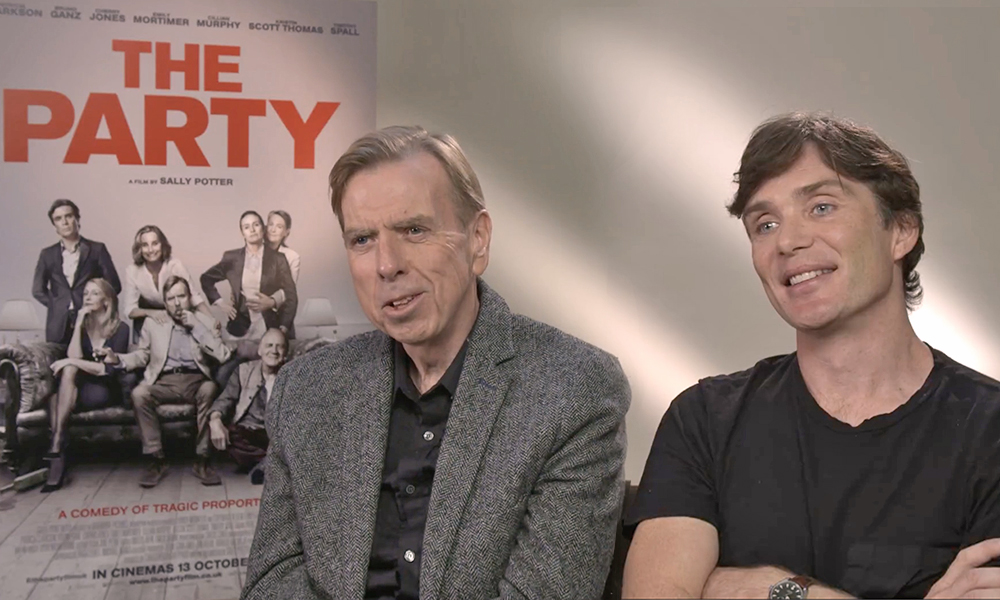
The Party is the sharp-witted noir drama from Sally Potter set at an evening soiree of newly appointed Shadow Health Minister, Janet, played by Kristen Scott Thomas. Shot in black and white and unfolding in just 78 minutes, the film follows Janet and her motley crew of guests, played by an all-star cast, as revelations turn polite dinner conversation into farcical black comedy.
I had the pleasure of sitting down with Cillian Murphy, who plays coked up banker Tom, and Timothy Spall, who plays Janet’s rather distant husband Bill, to talk about the film ahead of its UK premiere at the BFI London Film Festival.
Hi, so nice to meet you. I’m Sarah from The Upcoming. Congratulations both of you on a really fantastic, incredibly funny and immersive film. Maybe you could start by explaining what drew you to being involved with this project?
Cillian Murphy: I really wanted to work with Sally Potter. I love her work: I think she’s an amazing filmmaker, an amazingly original voice in cinema and has been for a long time. When she sent me the script I really loved the character and the way you think he’s one thing at the beginning and then he turns out to be something entirely different. Then she had gathered together this incredible bunch of actors, all of whom I was desperate to work with, and so it was sort of a no-brainer really.
Timothy Spall: All of the above: totally agree with Cillian on that. I had the good fortune to work with Sally before on Ginger & Rosa and had a fantastic experience with that. So when this script came to me and we discussed it I was delighted for her to ask me to join with her to do it. She’s a remarkable, lovely person, as well as a brilliant artist. And also incredibly facilitating and inclusive given her script was already so precise – she’d already been through it with a fine tooth comb herself. For us to be asked to join and rediscover it with her, or to discover it together, was a real treat.
The style of the film is incredibly stripped back, meaning it seems to rest heavily on a razor-sharp wit and perfect comic timing. In particular you, Cillian, seem to have a lot of fun with this sweating fidgeting character of Tom. How did you develop the characters and bring out this comedy in the script?
CM: As Tim said, we worked with Sally individually before we all got together. Then we all got together and had a few days of rehearsal to talk through the scenes and begin to explore them. The thing I think is that there is a quite delicate balance there – these dark revelations, profoundly upsetting revelations, and then people’s reactions to them. I had a kind of “get out of jail” card because [Tom’s] off his head from the beginning – I could behave any way I wanted really! So that was lovely. He’s kind of chemically and emotionally fraught. Sally was great to allow me to do that kind of physical performance, which you don’t get to do that much on screen. I guess you do it a lot in theatre, but not so much on television or in film. So that was great fun. We were discussing it earlier actually – with that sort of stuff you just play the reality of it, and the truth of it, and then people identify with it. And it is funny because people can see how they would react in that situation. They put themselves in the shoes of those characters…
TS: And they’re relieved they’re not actually in that situation, I should imagine. There’s a sort of embarrassment, and an instant recognition of the desperation of it. It’s true the laughter often comes – and you can analyse where the laughter comes from – where there are these appalling revelations that cause these characters to act so seemingly out of character. But actually they’re not – not from what they’re really like but rather what they’d like to be like. It’s one of the great things in the modern world isn’t it? That we’re seeing people’s ideals being shattered by a much more instinctive – sometimes unpleasant instinct – calling out for change or calling out for some kind of parity. Sometimes reasonably, sometimes unreasonably. In a sense that is in this domestic scene – a kind of reflection of what is going on in a bigger world, in a bigger way, around us, I think.
And actually, while you were making the film the EU Referendum was happening, if I’m not mistaken. How did that play into the shooting of the film and your whole approach to it?
TS: The thing was, we were halfway through it – so we didn’t change the script. But what became apparent to everybody was that there was a tectonic shift. It caused some people to be upset, some people were confused – or still are. I’m still confused! But we got on with it. What became apparent, possibly afterwards, was that there was something in the piece itself that was reflecting this thing. And often, without being too lofty about it, art is far better at identifying things, can be far more prescient about things, and make political comment as well.
And to that extent, do you feel there’s a strong political message in there? The premise of the film is a party to celebrate Kristen Scott Thomas’s character, Janet, being appointed Shadow Health Minister, plus there are multiple references to parliamentary democracy and the contrast of humanist ideals – so is there a message or is the film simply exploring some of these themes?
CM: Well what I think it does is sort of provoke. It should provoke the audience to think about these things. It should never be sort of didactic or prescriptive, and go: “Look, this is the message” or “this is what you should be feeling”. It should say: “What do you think about that?”. “Go away and have a little think about that”. That’s what I like in films, clever films, you know, that they are entertaining, and, in this case, make you laugh, but also, when you go to the pub afterwards, maybe you’ll have a conversation about society or something. If you achieve that, then you’ve got something. And I think that’s what Sally set out to do.
Coming back to this incredible ensemble cast you mention and in particular the legendary actresses you have there – there’s a lot in the media at the moment about diversity in front of and behind the camera, in particular noting that there are fewer opportunities for women later in their careers. Do you think these seasoned actresses were an important aspect of the film? What was it like working alongside them?
TS: Well, I mean, obviously it was great for them. And it’s a thing people are always talking about, quite rightly, that there should be more women directors and more parts. But that’s to do with whoever they’re written by – I mean that’s just a shortfall in the way society is catching up with itself isn’t it? My mum and dad were very equal – my mum had her own business, had a hairdressers, at one point earned more money than my dad. So strong women, it’s a natural thing for me, women at the forefront of things. And quite rightly, you know? But these actresses are fantastic. It always surprises me when people say it’s strange, and I suppose it is, to have women over 30 being the central characters, and it being about them. But it is quite rare, isn’t it? I suppose that’s a mark of who’s written it. But Potter also writes very well for men. You could easily condemn these men but in a sense they’re as frail and as sensitive, and perhaps even more so in a bizarre way, than the female characters.
CM: And also that phrase “strong women” – I grew up in kind of a matriarchal household: my mum was teaching, and my grandmother was looking after us at home and around the house, so for me strong women are just women. It’s just the same thing. And I’ve worked with a lot of women directors over the years, female directors, and they’re just women – it’s a normal thing to me. Do you know what I mean? And so, seeing these brilliant actresses, it was great because they’re brilliant. But I don’t think Sally wrote [the script] because she felt like she was redressing some imbalance. I think she wrote it because there are just… It’s a really interesting story.
And in regards to the schedule of the movie and how tight it was, you’re both very prolific actors, and you work all the time – but this was all shot in 12 days. Did you feel like it was a more intense experience or was it a break from all the other things that you’re working on?
CM: It was lovely, I mean, it was obviously informed by that thing, like, “Oh my god we’ve got 12 days to shoot this, we’ve got quite a lot to do”, but everyone came really, really prepared, you know, us and Sally and all of the crew. And so we were all aware that it was quite an achievement to shoot a feature film in 12 days, which we did. But I suppose when you get up on your feet and you’re doing it, it’s like any other job really, you know?
TS: Yeah, I think, backing up what Cillian says as well and to add to that, it’s testament to Sally’s experience. And also her desire to continue her process through it, not being anyway curtailed by it, but this constant attention to detail. Making sure she didn’t just leave it undone – given it was two weeks, it felt like we were covering as much as you do if you have six months. Because her concentration and her preparation for it were so acute and she made sure we were all pretty in tune with each other about getting it done, it never felt like we were rushing it, although we must’ve been somewhere along the line – considering that’s the prep period for some films! Really drastic – the time it takes to organise the catering on some films. Probably the same budget as the catering for some films. Probably half of that, I’d imagine, for a big Hollywood film.
But do you think that that allows you to do something different artistically? When you strip back all that excess? I imagine there’s something great about doing a big budget film but perhaps this is almost more like being on the stage?
TS: Well no, a stage still has to make money and still costs a lot of money – but I see what you mean. What it does do, because of the nature of it, and it came out that way because Sally absolutely insists on artistic independence – she would never let the tail wag the dog. She always wants to make it her film her way, with the people she wants to do it. So if it ends up having to be done in two weeks, at least her creativity allows you to. And one of the reasons, I suppose, you can get it done is that it’s pure: she’s not having to please her paymaster. She’s having to make sure what we’re doing is a pure piece of collaborative work that she’s written. She’s not been distracted by having to send it off, “Is this right? How do we cut the cloth according to the commerciality of this?”. That in itself, that strips a massive amount of baggage away. I just hope it doesn’t encourage other financiers to say: “Well they did it in two weeks, why can’t every other film do that?”.
CM: Even the fact that she decided to shoot it in black and white – if there was somebody else controlling the reins, that decision would not have been an easy one.
TS: It wouldn’t have been tolerated, I don’t think. But the fact that it is – it’s difficult to explain these things – it gives it this immediacy, doesn’t it? Both an immediacy and a classical quality at the same time.
And if I could very quickly ask you about your next projects? Particularly you Cillian. Can you tell us anything about your upcoming film with Luc Besson, Anna, or the highly anticipated season four of Peaky Blinders?
CM: Yes, I’m am starting on this Luc Besson picture, Anna, in November and the next season of Peaky Blinders is also out in November. I’m not at liberty to reveal any details, and would be loathe to do so, other than I think it will be really good.
And you Timothy, what do you have in the pipeline?
TS: There are some things coming out I did recently: something I did in New Zealand called The Changeover, another film coming out sometime soon called Finding Your Feet. And it looks like – although it’s not absolutely 100% and again I can’t go on about it – I’m gonna be involved in a film about LS Lowry, the painter, and his mum.
Brilliant, thanks so much for your time. And congratulations again on a fantastic film. It was lovely to meet you.
Sarah Bradbury
The Party is released nationwide on 13th October 2017. Read our review here.


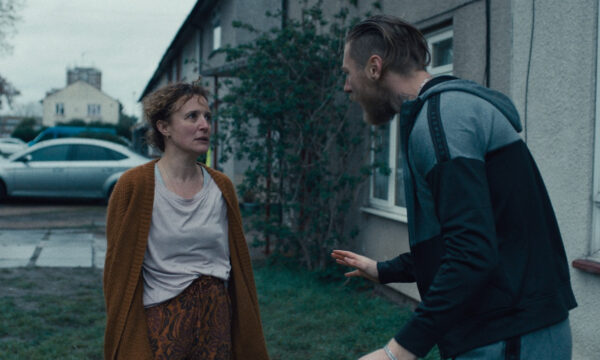

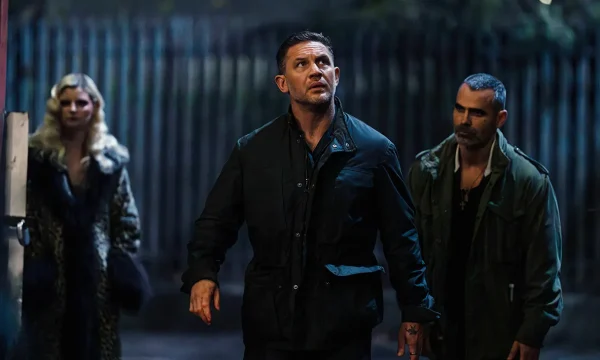
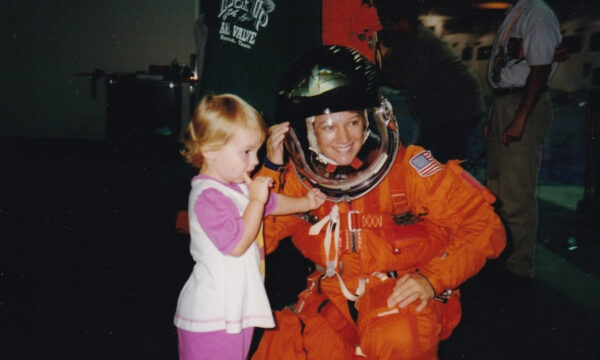
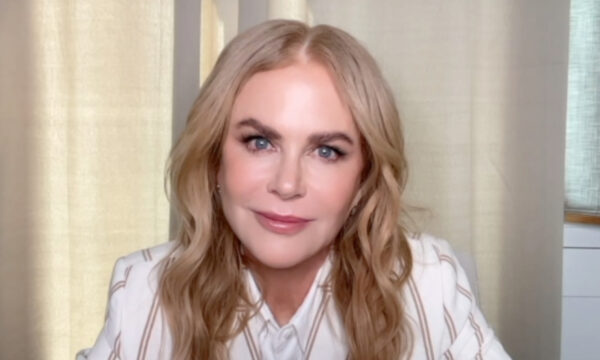
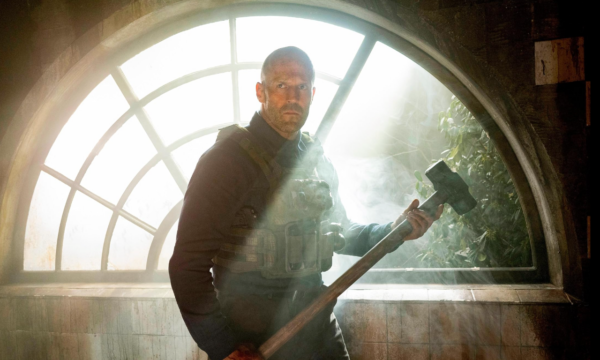
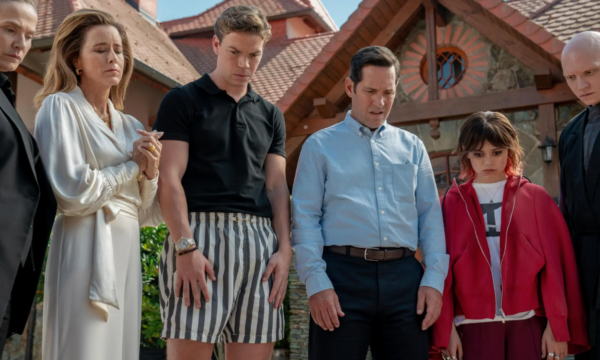








Facebook
Twitter
Instagram
YouTube
RSS